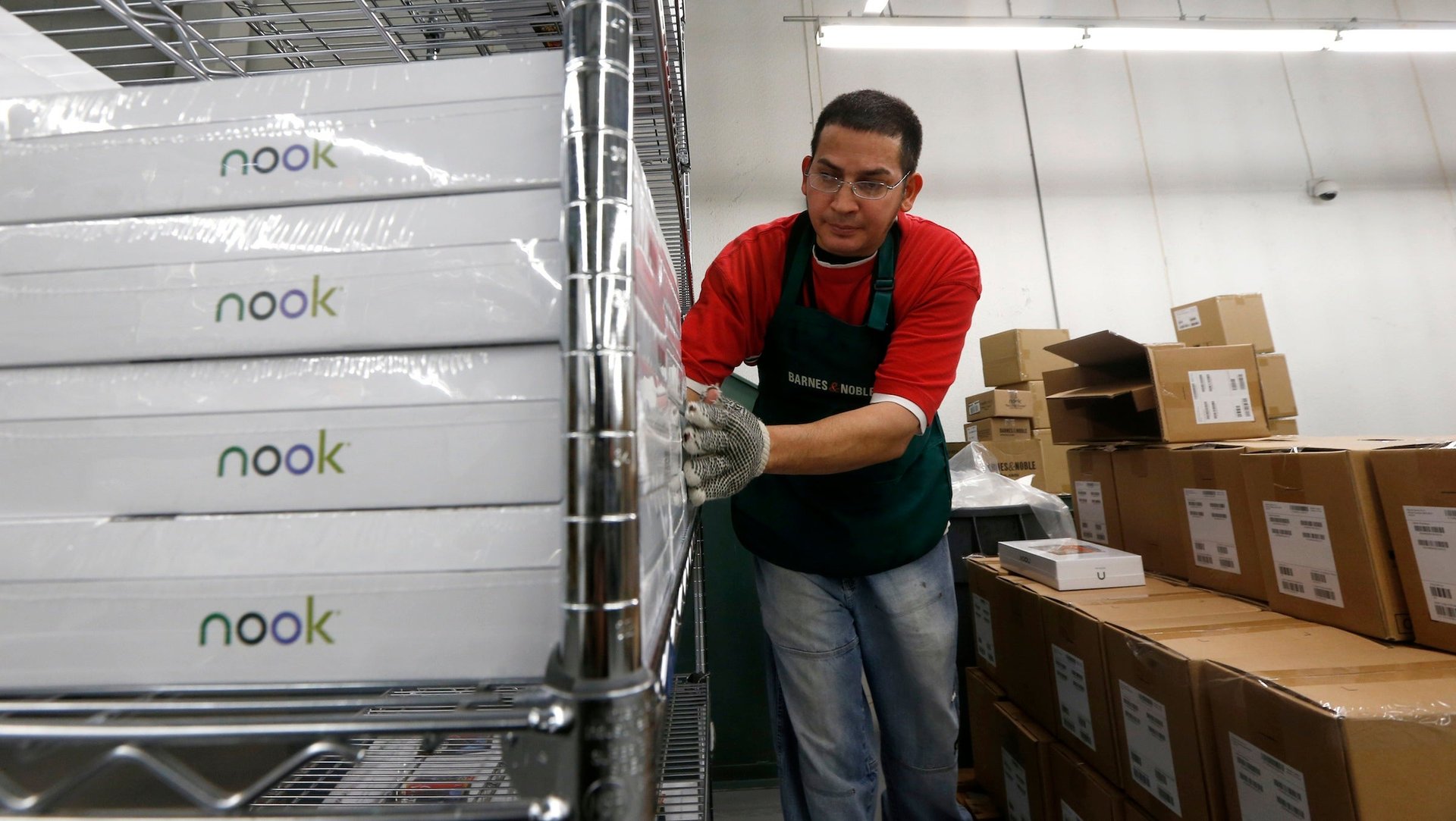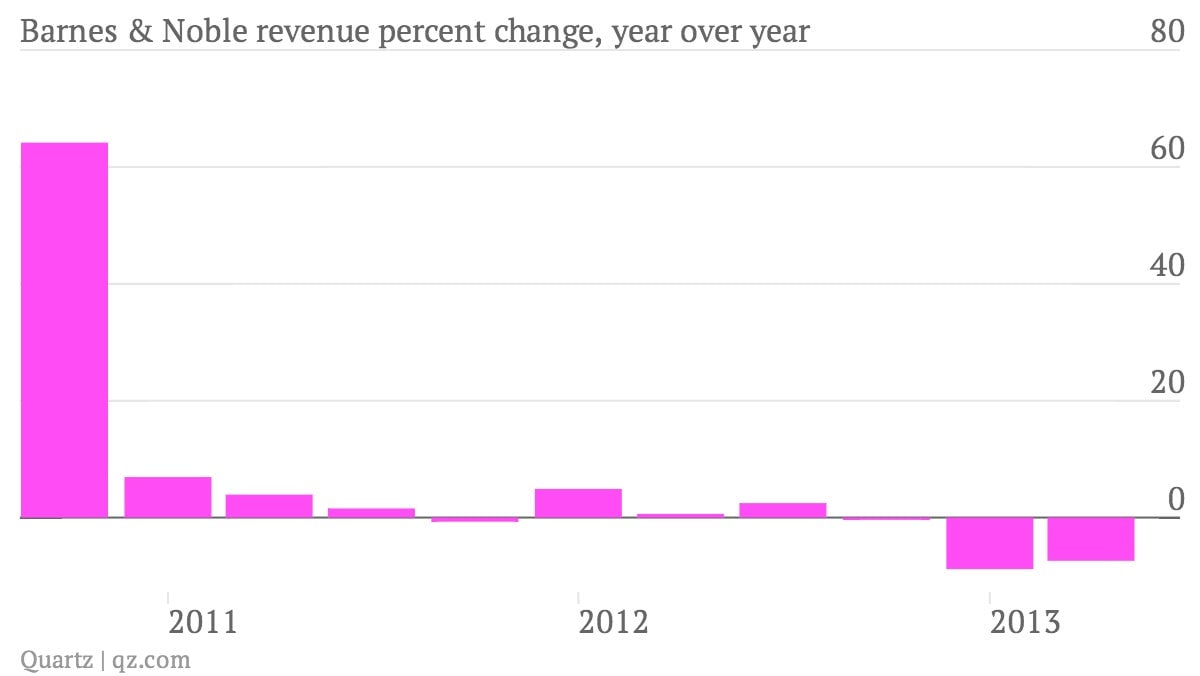Barnes & Noble’s best hope may be to get rid of the Nook, but who would buy it?
The numbers: They were ugly. US book retailer Barnes & Noble reported a fourth quarter net loss of $2.11 per share and revenues of $1.3 billion. Both figures missed analyst estimates. The retailer’s shares were down by more than 9% in morning trading.



The numbers: They were ugly. US book retailer Barnes & Noble reported a fourth quarter net loss of $2.11 per share and revenues of $1.3 billion. Both figures missed analyst estimates. The retailer’s shares were down by more than 9% in morning trading.
What’s interesting: Barnes & Noble’s traditional businesses once again performed relatively better than its Nook e-reader and tablet division. The retail segment saw revenues fall by 10% but its Nook business dropped by 34%. Revenues for the college book business rose by almost 11% in the fourth quarter. Barnes & Noble said that it plans to “significantly reduce losses” in its Nook business by sharing the costs of manufacturing for the color tablet version of the Nook with a partner. As a result, the e-readers will be developed in-house, but the tablets will be co-branded with another (as yet unnamed) manufacturer of consumer electronic products.
The takeaway: Building the Nook, a competitor to Amazon’s Kindle, initially looked like a smart move for B&N; its main competitor, the Borders bookstore chain, closed down after completely missing the e-book bandwagon. But it has been a huge capital drain on the firm, even with the $300 million investment in the business from Microsoft. Although there were hopes that Microsoft could buy the Nook business outright, that looks unlikely. Spreading the cost of building the Nook tablet will help, but what it really needs is a boost in sales.
That seems a slim hope. The Nook now faces stiff competition not only from the Kindle, but also Apple’s iPad and various Samsung tablets. B&N founder Leonard Riggio’s proposal to buy out the retail arm, which includes college books, looks like a wise move since that’s the healthier part of the business. But that leaves the future of the Nook more uncertain. The company’s best hope may still be to get rid of the Nook business altogether—but would anyone would buy it?